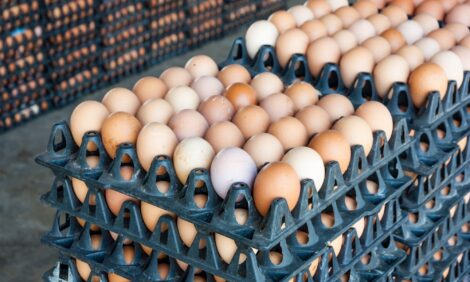



UN Promises Sustainable Agriculture
GENERAL - The Kyoto Protocol survived the United Nations’ climate change conference in Durban, which ended 11 December, also opened the door to major advances towards increased food security and more animal welfare-friendly, equitable, and environmentally sustainable agricultural systems.Humane Society International (HSI) worked with its partners in the Ecosystems Climate Alliance (ECA) to call attention to the underlying causes of deforestation and forest degradation. Animal agriculture is a leading cause of deforestation; over 70 per cent of deforested land in the Amazon is now devoted to grazing and feedcrop production for farm animals.
The conference concluded with a decision asking governments and other stakeholders to submit suggestions for addressing the drivers of deforestation, with the aim of incorporating them into the mechanism on Reducing Emissions from Deforestation and Forest Degradation (REDD+).
In addition to the new window for HSI to call for humane solutions to animal agriculture’s impact on deforestation, COP 17 resulted in a new forum to address the issue of agriculture and climate change, which HSI will use to discourage the industrialization of farm animal production, or factory farming.
Meeting the call of numerous influential, international civil society organizations, including HSI, parties signed an agreement to finally put agriculture within the UN climate convention process. The decision calls on submissions from countries and stakeholder organizations on agriculture, with the aim of making a further decision based on this at next year’s COP in Qatar.
This creates a timeline and opportunity for environmental, animal protection, rural development, and other social justice groups to have a greater voice in climate and agricultural policy at local, national and international levels.
“Now the real work begins,” said Geoff Evans, HSI’s Animal Agriculture and Climate Change Specialist. “Moving forward, individual governments must implement policies and financial mechanisms that prioritise smallholder and sustainable farmers, who hold the key to improving food security, as well as to the well-being of communities and farm animals.”
HSI and its partners will continue to work with governments and international institutions to further these goals.








